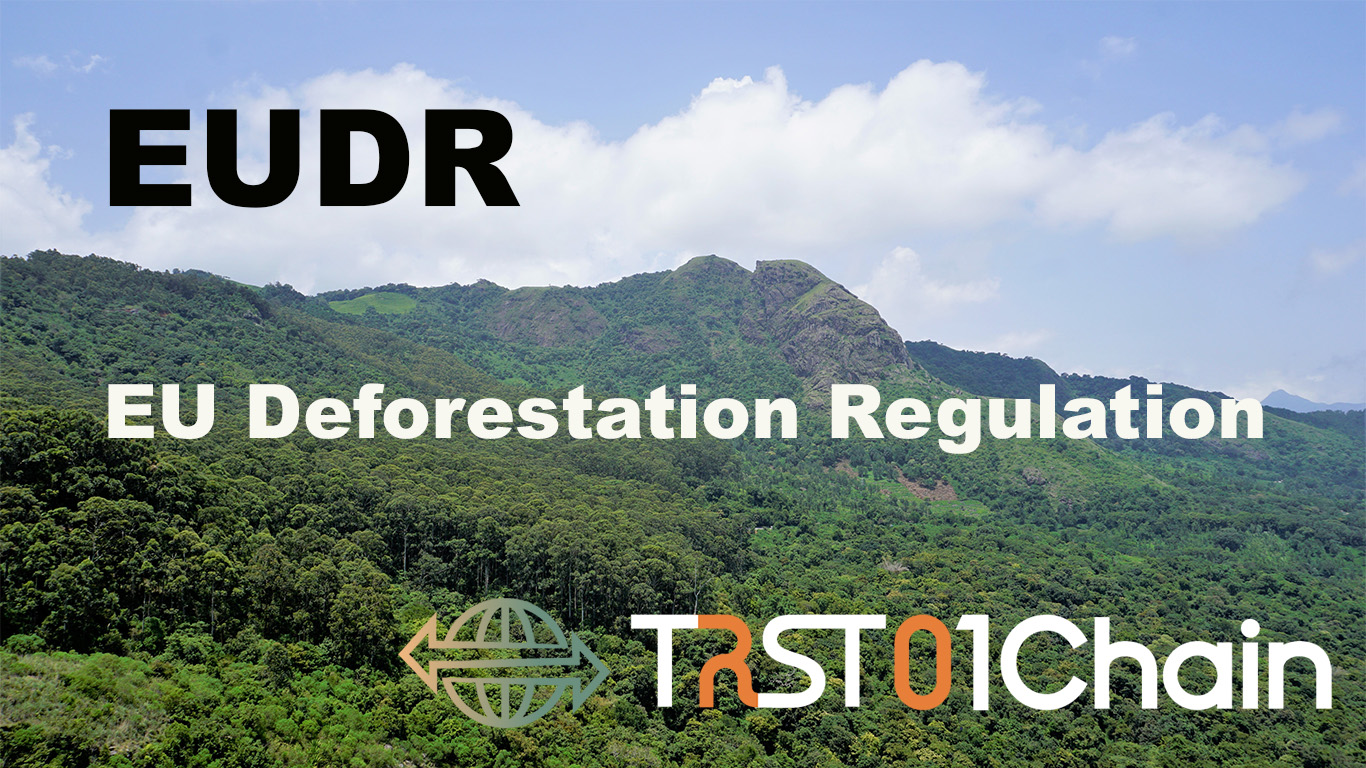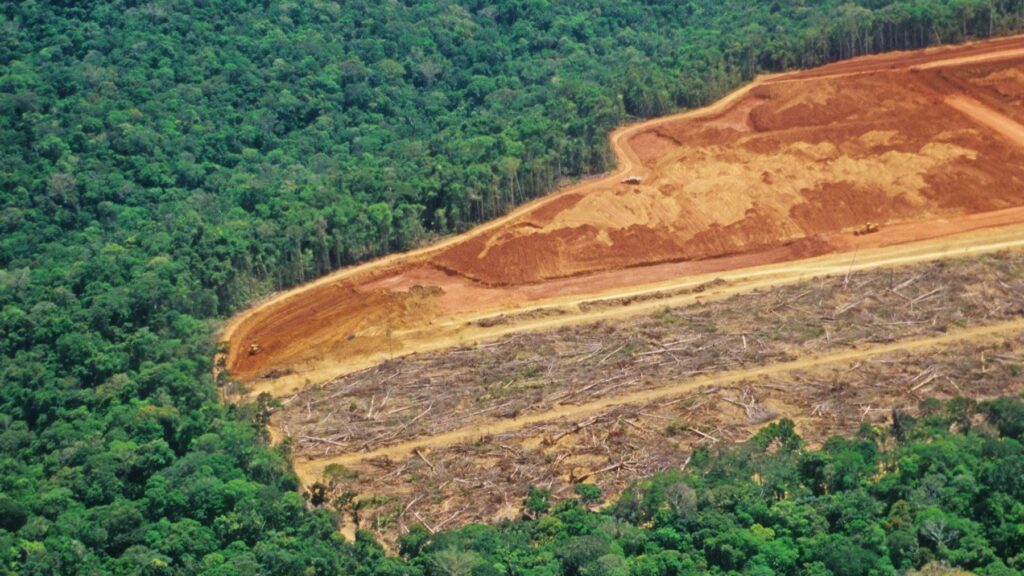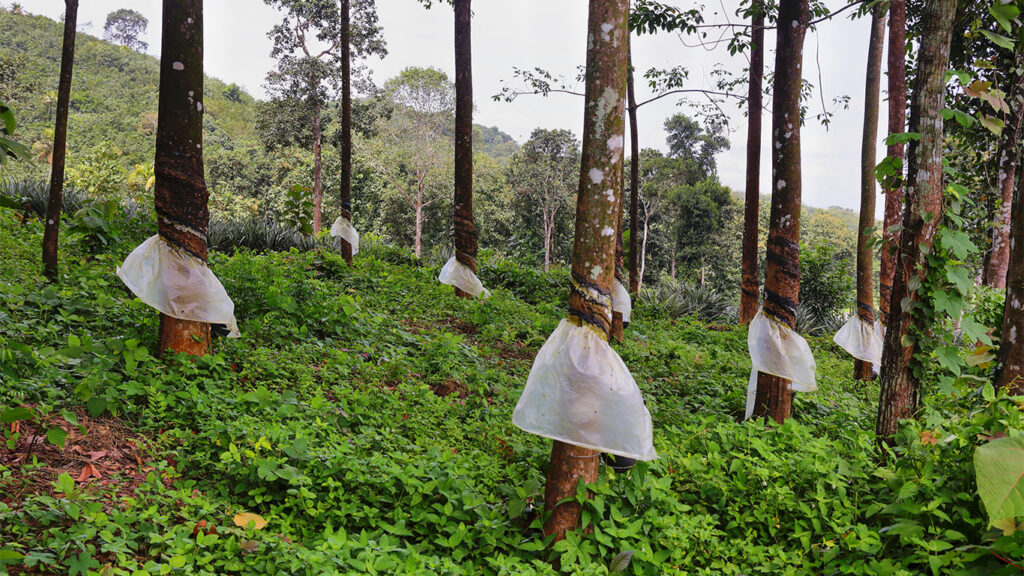EUDR Compliance in Indian Trade
The Impact of TRST01Chain
7th January 2024

India’s trade is at a significant turning point with the upcoming implementation of the European Union’s Deforestation Regulation (EUDR), which will kick in for larger firms from December 2024, with smaller firms required to comply by June 2025. While promoting environmental sustainability, this regulation brings many challenges and opportunities for India. The EUDR is a complex set of rules that will have far-reaching implications for India’s trade practices. As a result, Indian businesses must adapt to new regulations and find innovative ways to comply with them. Nonetheless, this regulation also allows Indian companies to demonstrate their commitment to environmental sustainability, potentially opening up new markets. As per a research note by the Global Trade Research Initiative (GTRI), the rule will affect 479 tariff lines in addition to the 777 lines covered by the carbon tax mechanism, and the two measures are expected to impact almost $10 billion of exports to Europe based on 2022 data. .
India’s coffee exports to the European Union (EU) make up almost 57% of its total coffee exports, while leather, oil cake and wood furniture exports to the EU account for 30%-40%. The new EU regulation is expected to have a major impact on India, particularly on smaller enterprises, as they may need help meeting compliance costs and due diligence requirements, which could ultimately exclude them from global agricultural trade.

Challenges: Navigating the Rough Seas
Impact on Key Industries: The implementation of a new EU regulation has raised concerns for various industries in India, including coffee, rubber, leather, and paper. These industries are major players in the EU market, and the regulation requires them to follow strict standards for deforestation-free production. This means they must establish comprehensive traceability systems to ensure their products are sustainably produced. However, this poses a significant challenge for small producers who may need more resources to comply with such stringent requirements. The regulation has created an urgent need for these industries to adapt and innovate while ensuring sustainable production practices. It is worth noting that India exports 57% of coffee, worth over $600 million annually. Indian coffee production is 70 per cent robusta beans and 30 per cent arabica beans. India is also the world’s fifth-largest natural rubber producer, and the EU receives approximately 25% of its total natural rubber and rubber products exports, worth around $800 million annually. India is a major exporter of finished leather products, with the EU accounting for 30-40% of its exports, worth roughly $1.5 billion annually. Tracing deforestation-free sources within complex supply chains is a hurdle these industries must overcome to ensure compliance with the new regulation.
- Compliance and Due Diligence: To comply with regulations, businesses must implement advanced data management and information-sharing systems to track commodities in great detail. However, this could pose a significant hurdle for small and medium-sized enterprises (SMEs), as the costs associated with such requirements could limit their access to the highly lucrative EU market. As a result, SMEs may need to consider alternative solutions to ensure they can compete on a fair and level playing field.
- Market Uncertainty and Geopolitical Tensions: The implementation of the European Union’s Regulatory Framework for Medical Devices (EUDR) has the potential to significantly impact existing trade patterns. The ambiguity surrounding its implementation may create confusion and uncertainty, leading to disruptions in the global medical device market. Furthermore, there is a risk of strained geopolitical relations if India feels that the regulations unfairly target its industries or if compliance becomes too challenging for Indian medical device manufacturers. It is crucial to carefully consider these potential consequences to ensure a smooth and fair implementation of the EUDR.

Opportunities: The Silver Lining
- Catalyst for Sustainable Practices: The European Union has been actively promoting the adoption of sustainable and eco-friendly business practices. By adhering to these regulations, companies can build a positive reputation and appeal to consumers who prioritize environmentally conscious practices. This not only helps businesses to stand out from the competition but also enables them to charge higher prices for their products and services. The move towards sustainability not only benefits the business but also contributes to the overall well-being of the planet and its inhabitants.
- Technological Advancement: In today’s rapidly evolving global economy, businesses are constantly seeking ways to optimize their supply chain management strategies. One promising solution is the adoption of efficient traceability and verification systems. This is particularly relevant in India, where implementing such technology could spur innovation and place the country at the forefront of supply chain management technology. By embracing these cutting-edge technologies, Indian businesses could enhance their competitiveness, reduce costs, and improve their ability to meet the needs of their customers.
- Market Diversification: The European Union Deforestation Regulation (EUDR) could potentially catalyze Indian businesses to venture into unexplored markets beyond the European Union. Doing so could help foster diversification and establish commercial ties with countries that share similar sustainability goals and objectives.
The Role of Government and Industry: Charting the Course Together
- Government Support: The Indian government must play a vital role in aiding businesses, especially small and medium-sized enterprises, in adjusting to the latest regulations. To ensure a smooth transition, the government can extend various forms of support, such as providing financial aid, setting up infrastructure to enable traceability, and conducting research into sustainable materials and practices. With these measures in place, businesses can confidently navigate the regulatory landscape and thrive in a sustainable manner.
- Industry Collaboration: It is imperative for different industries to collaborate and develop common data-sharing platforms and traceability solutions. By doing so, they can ensure that data is shared accurately and efficiently, promoting accountability and transparency. Moreover, collective advocacy can prove to be a game-changer in guaranteeing fair implementation of the European Union’s EUDR. It can also help in establishing an open and constructive dialogue with the EU, paving the way for mutually beneficial partnerships and collaborations.

The integration of TRST01Chain into various sectors of Indian trade, particularly those affected by the European Union’s Deforestation Regulation (EUDR), represents a significant advancement in aligning with both regulatory compliance and environmental sustainability. This platform transcends its role as a mere compliance tool; it embodies a strategic foresight into the future of industries like leather, soy, and wood.
Enhancing Sustainability and Market Accessibility
- Environmental Impact Assessment Tools: TRST01Chain is a revolutionary solution designed to help businesses in the Rubber, Coffee, Leather, Soy, and Wood sectors improve their sustainability practices. Using advanced technology, TRST01Chain accurately measures and tracks sustainability performance, enabling businesses to identify areas for improvement and make data-driven decisions to enhance their sustainability practices. This not only aligns with global climate change mitigation efforts but also ensures compliance with stringent regulatory requirements like the EUDR. By adopting TRST01Chain, businesses can demonstrate their commitment to sustainability and create a positive impact on the environment while also improving their bottom line.
- Traceability and Competitive Market Positioning: Effective product traceability is becoming increasingly vital for businesses, especially those that aim to demonstrate their commitment to sustainable practices. This is particularly relevant in today’s market, which is placing a higher value on eco-conscious products. By leveraging the capabilities of a traceability platform, Indian exporters can improve their market positioning and potentially command better pricing. TRST01 platform’s ability to track a product’s journey from its origin to the end-user provides transparency and accountability, which is highly valued by consumers who seek products that are ethically and sustainably sourced.

TRST01Chain: Digital Ally in Compliance and Growth
- Facilitating EUDR Compliance: TRST01Chain plays a crucial role in supporting Indian exporters to comply with the stringent requirements of the European Union Data Regulation (EUDR). This innovative platform provides a comprehensive framework to showcase responsible production methods and ensure transparency across the entire supply chain, from the sourcing of raw materials to the delivery of final products. With TRST01Chain, exporters can bolster their reputation for ethical and sustainable business practices, which are increasingly important to consumers and regulators alike.
- Building Trust and Competitive Advantage: In today’s highly regulated and discerning global market, businesses need to establish trust with their consumers and stakeholders to succeed. Adopting TRST01Chain can help achieve this goal by providing a reliable and secure platform for transactions. Additionally, compliance with sustainability standards is becoming increasingly important, and Indian exporters who adhere to these standards can gain a distinct competitive edge over their rivals. By embracing TRST01Chain and prioritizing sustainability, businesses can build a strong reputation and stand out in an increasingly crowded marketplace.
Embracing the Sustainability Ethos
- Transforming the Production Journey: The production processes in industries like leather and wood involve several complex stages. TRST01Chain helps in navigating these complexities, ensuring that the production is sustainable and responsible.
- Shaping a Sustainable Future: Tools like TRST01Chain play a pivotal role in redefining the sustainability narrative in Indian trade. They demonstrate that environmental stewardship and business growth can coexist and complement each other. By leveraging such technology, industries can ensure their change aligns with responsible and sustainable practices.
The adoption of TRST01Chain signifies the Indian trade industry’s commitment to sustainability while maintaining its competitive stance in the global market. This technological innovation is crucial for building a transparent, sustainable, and prosperous future for various Indian industries impacted by the EUDR.
More detail Write to us journey@trst01.com
Reference
Coffee:
- Value:“Aromatic Journey: Coffee Exports from India,” Coffee Board of India, September 2023.https://www.pib.gov.in/PressReleasePage.aspx?PRID=1897402
- “EU Trade in Goods with India,” European Commission, June 2023. https://policy.trade.ec.europa.eu/eu-trade-relationships-country-and-region/countries-and-regions/india_en
- Challenges:“Navigating the Labyrinth: The EU Deforestation Regulation and its Implications for Indian Trade,” India Briefing, October 2023. https://www.linkedin.com/pulse/impact-eu-deforestation-regulations-indias-exports-varma-ex-ias-vr-
- “Impact of EU’s Deforestation Act on Indian Coffee Exports,” Trade Promotion Council of India, August 2023. https://www.tpci.in/indiabusinesstrade/blogs/eus-deforestation-act-impact-on-indian-exports/
Rubber:
- Value:“India Rubber Statistics – 2022,” Rubber Board of India, January 2023.http://rubberboard.org.in/rbfilereader?fileid=349
- “EU Trade in Goods with India,” European Commission, June 2023. https://policy.trade.ec.europa.eu/eu-trade-relationships-country-and-region/countries-and-regions/india_en
- Challenges:“India’s Rubber Industry Faces Tough Choices as EU Enacts Deforestation Law,” Reuters, September 2023.https://www.reuters.com/sustainability/sustainable-finance-reporting/comment-why-are-rubber-companies-keeping-investors-dark-over-deforestation-risk-2023-05-25/
- “Navigating the Labyrinth: The EU Deforestation Regulation and its Implications for Indian Trade,” India Briefing, October 2023. https://www.linkedin.com/pulse/impact-eu-deforestation-regulations-indias-exports-varma-ex-ias-vr-
Leather:
- Value:“Annual Report 2022-23,” Council for Leather Exports, March 2023. https://leatherindia.org/
- “EU Trade in Goods with India,” European Commission, June 2023. https://policy.trade.ec.europa.eu/eu-trade-relationships-country-and-region/countries-and-regions/india_en
- Challenges:“Leather Trade in India: Challenges and Opportunities in the Face of Sustainability Concerns,” The Economic Times, November 2023. https://economictimes.indiatimes.com/topic/leather-industry
- “Can the Indian Leather Industry Adapt to New EU Deforestation Rules?,” BBC News, October 2023.https://texfash.com/column/indian-leather-industrys-problems-and-the-answers